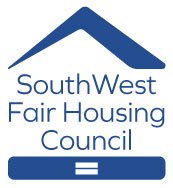Discrimination Against Hispanic Heritage: A Closer Look at National Origin Discrimination in Housing
Every year from September 15 to October 15, the United States celebrates Hispanic Heritage Month, an event honoring Hispanic and Latino Americans' diverse culture, history, and contributions. While the nation takes this month to celebrate, it's crucial to remember the barriers these communities continue to face, particularly in housing.
Discrimination in Advertisements
Often, discrimination is subtly embedded within housing advertisements. Some ads implicitly or explicitly discourage Hispanic or Latino individuals from applying, either through language, imagery or even by specifying preferences that indirectly target specific national origins.
Landlord and Tenant Cases
Discrimination often manifests in the landlord-tenant relationship. There are instances where landlords might refuse to rent to Hispanic or Latino individuals, place them in less desirable units, charge them higher rent, or treat them differently because of their national origin.
Lending Discrimination
The path to homeownership can also be riddled with bias. Hispanic and Latino individuals might encounter less favorable mortgage rates or terms or might even be denied a mortgage altogether based on their national origin.
Harassment
It's a harsh reality that some Hispanic or Latino renters or homeowners face harassment by neighbors, landlords, or property managers due to their national origin. This harassment can range from racial slurs and derogatory remarks to threats of violence. Discrimination based on Hispanic heritage isn't just morally wrong; it's also illegal under U.S. federal law. This article examines how discrimination against persons because of their Hispanic heritage qualifies as national origin discrimination, particularly in the context of housing.
Housing and National Origin Discrimination
National origin discrimination means treating someone less favorably because they are from a particular country or part of the world, because of their ethnicity or accent, or because they appear to be of a certain ethnic background—even if they're not. This means that denying housing, harassing renters or buyers, or offering different terms and conditions due to someone's Hispanic heritage is illegal.
The Language Barrier: Discrimination in Another Form
Language can often serve as a veiled avenue for discrimination. According to U.S. law, housing providers cannot deny someone housing just because they do not speak English. While private housing providers are not obligated to offer translation services, they are legally bound not to refuse housing solely based on language limitations. Refusing to work with an interpreter provided by a potential tenant also falls under the realm of discrimination.
The Importance of Awareness and Education
As we celebrate Hispanic Heritage Month, awareness should go beyond appreciating the culture and history. It should also serve as a call to action to end all forms of discrimination against Hispanic and Latino Americans. Understanding the legal obligations can go a long way in promoting fair treatment and equal opportunities for everyone, regardless of their national origin.
Discrimination against individuals based on their Hispanic heritage is not only against the ethos of what the United States stands for but is also illegal under federal law. As we observe Hispanic Heritage Month, let's commit to removing barriers and promoting a fair, inclusive housing market that respects the diversity of our nation.
Conclusion
Discrimination has no place in a country built on the ideals of freedom, equality, and opportunity. By upholding these principles in housing, we honor not just Hispanic Americans but all Americans. Discrimination undermines the values we celebrate during Hispanic Heritage Month, and it's up to us to ensure it finds no refuge in our communities. If you believe you've been a victim of housing discrimination based on your national origin, contact us by clicking the contact below.

